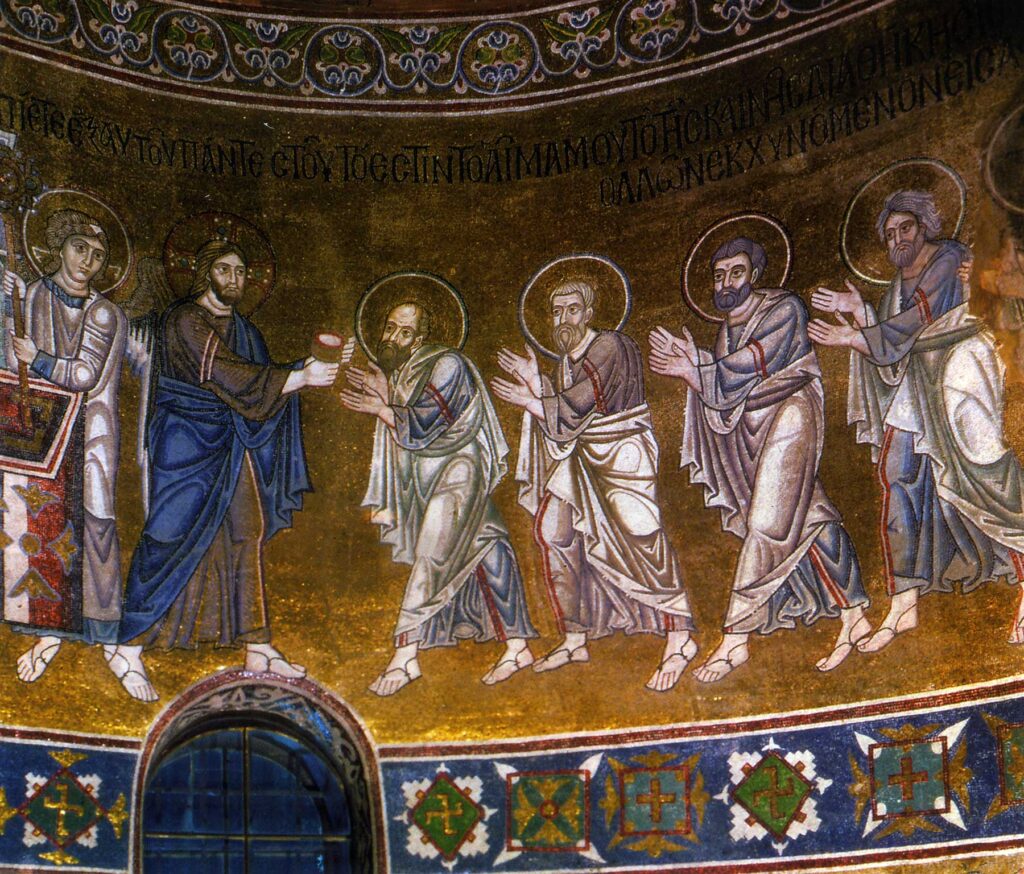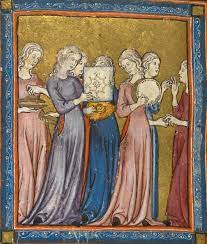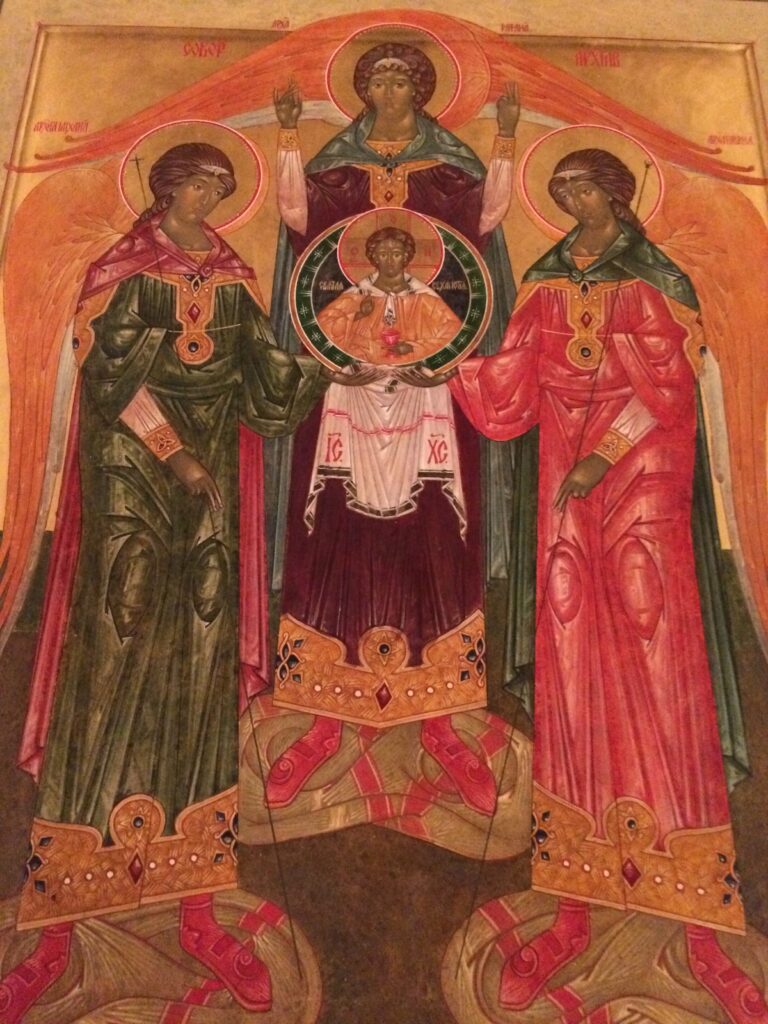
If the whole church comes together and everyone is speaking in tongues, and if then outsiders and unbelievers come in, won’t they say that you are all crazy? If, however, you are all prophesying …. the visitors will fall on their faces and worship God saying, “God is really in your midst!” (1 Cor. 14:23-25)
St. Paul is still dealing with the troublemakers at Corinth who boast that they are the spiritual elite because they can speak in tongues. The apostle points out that anyone visiting the Christian dinners will think the Christians are all crazy if they are all babbling in some way that no one can understand. But if they hear people prophesying, i.e. preaching well, that is more likely to bring them to conversion.
The unbelievers will think the Christians are just crazy people if they hear the Christians babbling on and on in tongues because they won’t understand anything that the tongue-speakers are saying.
This is the same reason that non-believers were not allowed to attend the celebration of the Eucharist: because they won’t understand what the Christians are saying, even if the Christians are saying words in a language that the non-Christians speak. Unless a person has been properly instructed and baptized before coming to the Eucharist for the first time, nothing they hear or see will make sense. The words “Body of Christ” and “Blood of Christ” will sound like cannibalism. The love of each Christian for the “brothers” and “sisters” will sound like incest. The exchange of a Kiss of Peace will underscore the appearance of incest because only family members were allowed to kiss each other.
None of these words and behaviors make sense without prior instruction, i.e. catechism. Therefore non-believers should be kept out of the celebrations of the Eucharist. (Besides, non-believers might be there as spies for the government, in order to arrest the Christians they see at the Eucharist.)
Addendum, based on a thoughtful question (see “replies” below):
How does this carry over into our contemporary situation? I think the question of who understands what is very complicated now. We live in the remnants of Christendom and presume people have a grasp of basic Christianity but I think that is not true—-many people have no understanding of even the most basic Christian teachings and no familiarity with even the most fundamental Biblical stories. We must redouble and even triple our efforts to teach and proclaim the whole Gospel, from its beginning in Genesis to its conclusion in the Apocalypse. I think we should refer to the great apologists of the second and third centuries: what did they think was of first importance in explaining to the non-Christian world and how did they proclaim it in a way the world could understand?
We have to have a better grasp of contemporary culture as well as contemporary language to do this. But we should not wait until we have the “perfect” message to share. We must begin now and do the best we can with what we have. What we cannot do is sit on our hands and expect someone else to do all the work!


